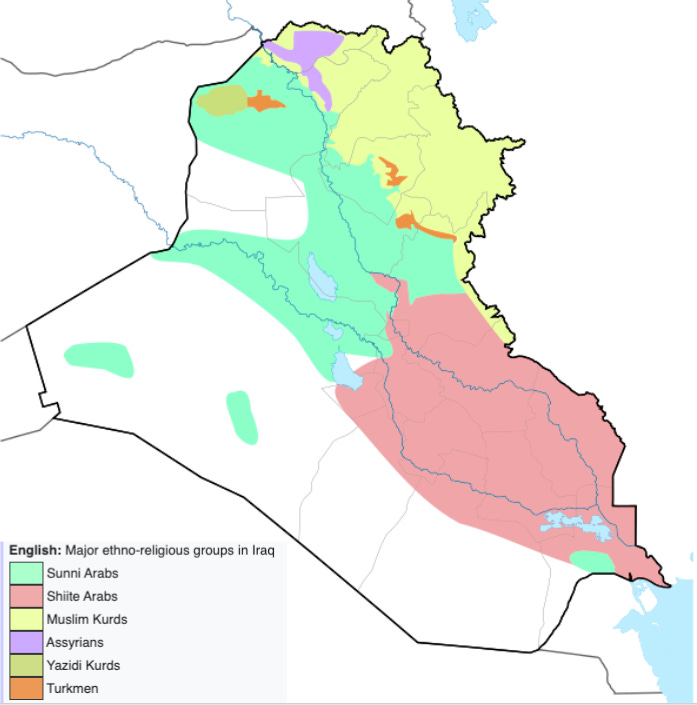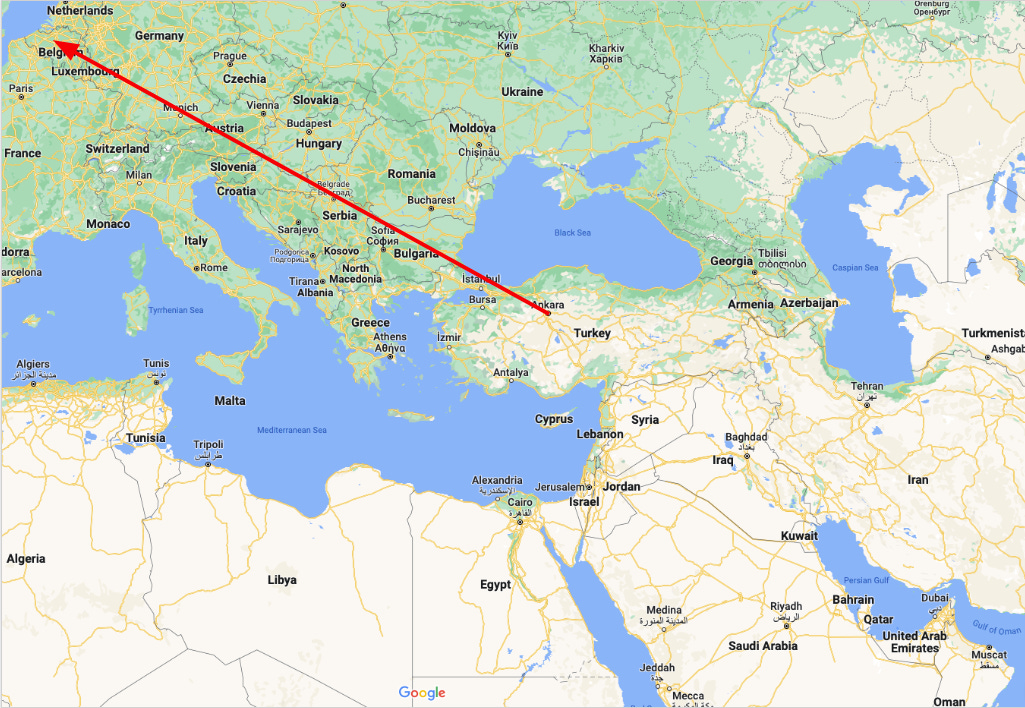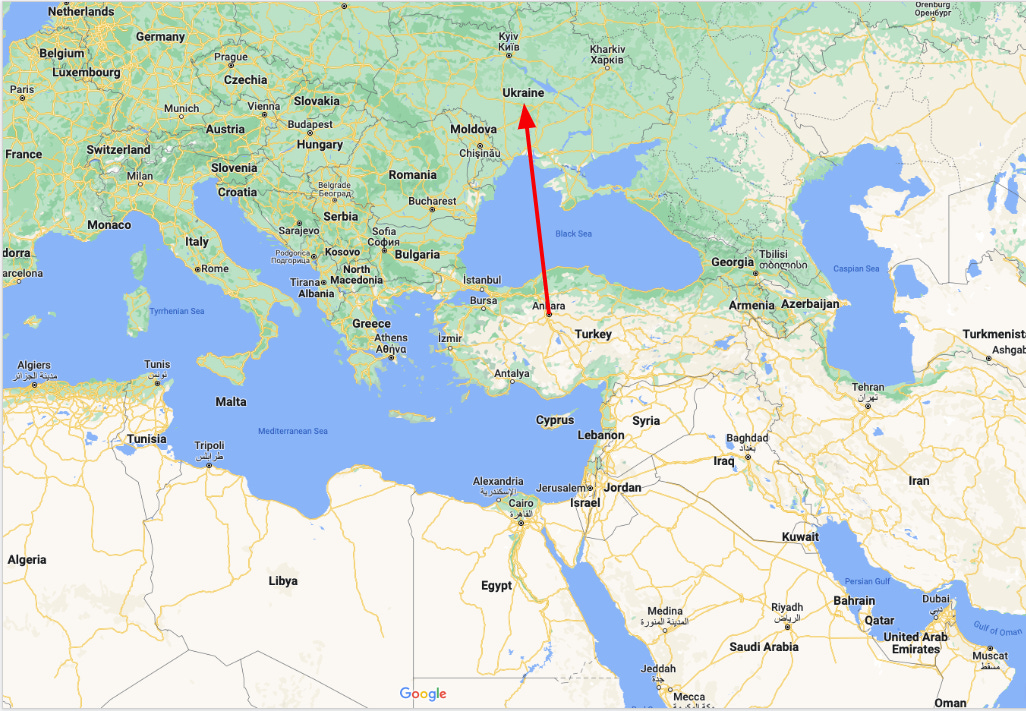A few weeks ago we discussed Turkey entering the world stage. The story continues as Turkey utilizes their diplomatic strength.
Iraq
America overthrew Saddam Hussein and ushered in an era of democratic politics into Iraq. To oversimplify Iraqi democratic politics, we can say three groups battle for supremacy (Sunni, Shia, and the Kurds). Iran, a Shia dominated country, funds and supports Shia political groups aligned with their interest. America justifies its current involvement in Iraq by noting that without U.S. involvement, Iran will dominate Iraq's political system.
The killing of Qassam Solemani put a speed bump in Iran’s plans to dominate Iraq. The death of Solemani brought disorder to Iran’s foreign operations. This opens the door for greater Turkish involvement in Iraqi affairs. Turkey takes advantage of the opening by increasing its relationship with Iraq at Iran’s detriment in three different ways.
Turkey is working with a group of countries to construct pipelines to connect Iraqi oil to the European market through Turkey. This would further erode Iran’s potential oil export markets
Turkey also maintains regular contact with Iraqi elites and attempts to influence political events in Iraq. Iraqi political parties partnering with Turkey presents a challenge to Iran’s political control in Iraq.
Turkey has also increased its military presence in Iraq and its cooperation with Iraqi security forces. Turkey pursues this in order to fight the PKK, Kurdish separatists in Turkey. Turkey’s close relationship with Iraq’s security sector can afford it great influence in other Iraqi affairs.
The U.S. military abhors leaving a security vacuum, especially given the disastrous withdrawal of U.S. forces from Afghanistan. Greater Turkish involvement in Iraqi politics may give the opening needed to withdraw U.S. forces from Iraq.
Europe
While Turkey’s actions aligns with U.S. interests in Iraq, we can notice the difficulty of working with Turkey by its relationship with Europe. Turkey has been negotiating its membership to the EU for the last few decades. In 2016 Turkey made a deal with the EU to limit the flow of migrants into Europe in return for payments from the EU. The deal appears to be fruitful as migrations from Turkey into the EU dropped 70% year over year in 2020.
Turkey also threw its weight around during Finland and Sweden’s NATO bids. Sweden maintains a growing relationship with the Kurds. The ruling Social Democrat party promised to deepen its relationship with the Syrian Kurdish group called YPG, an affiliate of the PKK. This relationship will likely be damaged by the results of the deal with Turkey. Sweden will need to extradite 73 suspected Kurdish terrorist to Turkey and remove the embargo applying to Turkish arms sales.
These last two examples showcase how Turkey will ruthlessly pursue its interest even when it rankles fellow NATO members. While it may seems Europe loses from tough Turkish diplomacy, Europe also benefits from Turkey’s independent streak.
Ukraine
As mentioned last week, Turkey’s Bayraktar TB2 drone has already meaningfully impacted the battlefields of Syria, Libya, and Nagorno-Karabahk. In my first InfraredLine article I described in detail the Bayraktar and mentioned Ukraine becoming the next battlefield affected by this technology. As Turkey builds their drone factory in Ukraine, the importance of this weapon will increase.
I documented Turkey’s role of weapons exporter, but Turkey throws around its diplomatic weight as well. Three months ago I noted that The World Food Program estimates that the war in Ukraine will create an acute hunger situation for 47 million people. This is because both Russia and Ukraine need to send their food exports through the Black Sea, without encountering ship-sinking weapons like anti-ship cruise missiles.
One can easily conclude that many millions may die if grain and other food exports cannot sail out of the Black Sea. To my surprise Turkey secured a diplomatic breakthrough to allow both Russian and Ukrainian food exports to safely traverse the Black Sea. According to the Turkish Defense Minister, 27 Ukrainian ships and 26 Russian ships have left both countries because of the diplomatic breakthrough. I see two notable impacts of this deal.
Starvation would have led a massive increase in migration into Europe, further destabilizing the continent.
Turkey’s dogged diplomacy may have saved millions of lives.
Conclusion
In 2010 the relationship between Israel and Turkey reached its low point. Both sides cut diplomatic relations after armed activists were killed in an Israeli raid on a Turkish flotilla. But over a decade later both sides have finally normalized relations. We may have Iran to thank for this diplomatic breakthrough. Just like Turkey’s Arab neighbors, Turkey noticed Israel’s usefulness in stymying Iran’s regional ambitions.
Just like in our other examples, Turkey demonstrates great flexibility in foreign policy. One should not treat Turkey like a complete ally or a total enemy. Turkey’s relationship with the U.S. and Europe will be marked by frustrations and friendship, cooperation and competition. U.S. policy makers need to remove their black and white frames in order to maximize the utility of their relations with Turkey.







